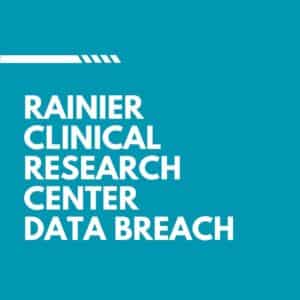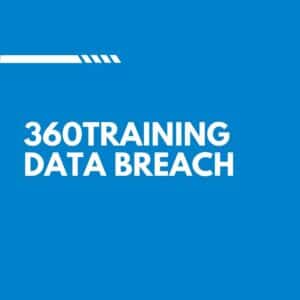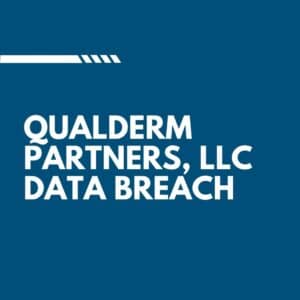
In the spring of 2025, Governor Bob Ferguson signed hundreds of bills into law. Many of these bills directly affect workers across Washington, concerning licensing requirements, workers’ rights, accommodations, benefits, and processes. We’ve curated a list of all the laws that will affect workers in specific fields as well as generally. Most of these laws are to take effect on July 27, 2025, with some exceptions. Here are the laws you should know about:
Licenses and Requirements
- HB 1023, effective 6/1/2028, makes it easier for licensees to obtain a multi-state license for temporary stays, as well as obtaining a new license for a new home state. This law is highly detailed and may affect specific licenses differently than others.
- HB 1648 extends a deadline for a provider to get the required qualifications so they can begin work as soon as possible and focus on getting their license in the meantime.
- HB 1874 requires training for cosmetologists, barbers, estheticians, and hair designers on the care, styling, and treatment of textured hair. Effective 3/1/2026. Includes cultural competency and historical education on the significance of textured hair in diverse communities. Not only for these licensed individuals to extend their reach, but also for the health, well-being, trust, and confidence of the client.
- SB 5265 expands minimum requirements for electrical inspectors to include certain out-of-state experience.
- SB 5501 places some limitations on what an employer can require for driving employees.
- HB 1142 standardizes basic training and certification requirements for long-term care workers who provide in-home care for their family members, including spouses or domestic partners. These individuals do not need certification if they care for their family member or partner, but they still need to receive 35 hours of training. The law will expire on July 1, 2026.
- HB 1511 establishes the duties and authority of Washington state ferries captains, as well as the collective bargaining of their crew.
- SB 5672 adds a section to RCW 18.88B.021 , regarding the certification of any person hired as a long-term care worker. This new section allows workers additional time to become certified until the end of 2027, in which time the state auditor will be completing their biennial performance audit.
- SSSB 5786 updates the age, fees, and other requirements for an employee to obtain licenses, permits, and endorsements.
Rights
- HB 1821 expands the definition of an interested party in relation to a position’s wage. Section 2 will go into effect on the first of next year.
- HB 1879 allows the waiving and combining meal and rest periods and establishes requirements for following these rules, like having them in writing and reporting them. It will take effect on January 1, 2026.
- HB 1121 concerns restrictions to the working conditions and hours of sixteen- and seventeen-year-olds. Allowing them to work the same number of hours during the week as on vacation if they are enrolled in approved programs. This takes effect on July 1, 2026.
- HB 1105 exempts exclusive bargaining representatives for department of corrections employees from certain provisions related to coalition bargaining.
- SB 5408 changes the language of RCW 49.58 to allow employers who violate the law regarding pay transparency to update job postings before an applicant or employee can take private action.
- SB 5653 redefines who qualifies as a fish and wildlife officer in a law relating to collective bargaining.
- SB 5503 concerns the public employee collective bargaining processes , which can now consolidate units. Public employers cannot require their workers to waive any right to make a claim under collective bargaining agreement.
- HB 1264 makes updates to RCW 47.64 – a law regarding collective bargaining for ferry system employees – to be more inclusive in their salary survey comparisons, notably by considering jobs that are directly comparable but not identical. The updated law will consider the wages, hours, benefits, and conditions of each position every year in an effort to make jobs in the ferry system more competitive.
- HB 1213 expands protections for workers in the state paid family and medical leave program. The department is now required to regularly check with the employer and distribute a written statement of employee rights for them to give to their workers on FMLA. The law also lays out in more details the limits and time periods required for FMLA.
- HB 1934 relates to the disclosure of information pertaining to complainants, accusers, and witnesses in an employment investigation by protecting the privacy of non-public individuals.
- SB 5525 protects workers facing employment loss due to businesses closing or mass layoffs, requiring a 60-day written notice to both the employment security department and the affected employees, as well as establishing penalties for non-adherence to the required notice period.
- SB 5104 protects employees from coercion in the workplace based on immigration status. Effective July 1, 2025, this law lays out penalties for coercion and false claims of it.
- HB 1171 exempts attorney higher education employees from mandated reporting of child abuse and neglect as it relates to information gained while providing legal representation to a client.
- HB 1644 sets requirements and penalties for employers to obtain minor working permits and keep their workplace safe for everyone, including and especially for working minors.
- HB 1068 includes management service employees in interest arbitration of Washington at the Department of Corrections.
- HB 1875 allows the use of paid sick leave to prepare for or participate in certain immigration proceedings. The employee must provide proof of the proceedings, but does not need to provide proof of legal immigrant status.
- HB 1141 places certain agricultural workers who are engaged in cultivating, growing, harvesting, or producing cannabis under the jurisdiction of the public employment relations commission for purposes of collective bargaining, and protects them from discrimination.
- HB 1308 requires that employers provide any and all requested personnel files, including job application records, performance evaluations, nonactive/closed disciplinary records, leave/reasonable accommodation records, payroll records, and employment agreements. The employer must adhere to the law within 21 days of the written request.
- HB 1936 extends the expiration of certain school employee post-retirement restrictions until 2030, declaring the act an emergency that was to take effect immediately. The law took effect on May 15, 2025.
Accommodations
- SSHB 1524 requires that employers provide isolated employees with panic buttons, resources for reporting harassment, and training on how to use panic buttons and resources. They must also adopt a sexual harassment policy, train their managers and supervisors on how to respond to panic button calls and protect isolated employees, and keep and updated record of completed training and panic buttons in use.
- SB 5217 expands pregnancy-related accommodations and protects them from discrimination, including exemption from jury duty. The law is effective January 1, 2027.
Benefits
- HB 1156 amends RCW 41.50.780 – the law on state deferred compensation – to include volunteer firefighters.
- SHB 1606 gives state employees access to peer-reviewed journals. This is a study that will determine the effectiveness of the law and will expire on June 30, 2027.
- SB 5101 expands access to leave and safety accommodations to include workers who are victims of hate crimes. The law takes effect on January 1, 2026.
- SB 5041 disqualifies workers who are unemployed due to a strike against their employer for benefits for two weeks or until the strike ends, whichever comes first.
- SB 5790 brings up to date (2025 – 2027) the law relating to cost-of-living adjustments (COLA) for community and technical college employees.
- SB 5478 simplifies and updates language in the law relating to benefits authorized to be offered by the public employees’ benefits board, which now include emergency transportation, identity protection, legal aid, long-term care insurance, auto insurance, homeowner’s and renter’s insurance, pet insurance, some fixed payment insurance, and travel insurance.
- SB 5191 adds dockworkers represented by a collective bargaining agreement concerning paid family and medical leave premium collection for dockworkers.
- HB 1788 increases the number of children that can be covered on a workers’ compensation claim from 5 to 6. It also increases child support to 2% of worker’s wages. The law is effective on July 1, 2026.
- HB 1270 relates to automatic deferred compensation enrollment for county, municipal, and other political subdivision employees. A municipality may offer the program and can automatically enroll employees unless they receive statement from the employee not to.
Processes
- HB 1275 establishes that, if a self-insured employer (SIE) is decertified, the Department of Labor and Industries (L&I) will take over for workers’ compensation. The SIE will be liable to and will reimburse L&I.
- SB 5209 explicitly lists the Department of Labor and Industries (L&I) in the definition of a limited authority Washington law enforcement agency while not granting new enforcement authority.
- HB 1414 improves access to career opportunities for students by revisiting industry requirements for employing minors.
- HB 1722 reviews state restrictions affecting students participating in secondary career and technical education programs and other state-approved career pathways.
- SB 5463 adds new sections to the law regarding the duties of industrial insurance self-insured employers (SIEs) and third-party administrators and the penalties they will face if they violate their duty of good faith.
- SSSB 1162 adds updates that strengthen laws relating to preventing workplace violence in health care settings.
- HB 1533 allows a specialty electrician to continue working under a valid specialty certificate of competency while enrolled in a journey level apprenticeship program. The law takes effect on January 1, 2026.
- SB 5682 continues the Washington customized employment training program and provides new expiration dates, as it seems to be working for growing businesses and retaining employees.
- HB 1490 expands the conditions of required fingerprint checks for employees.




